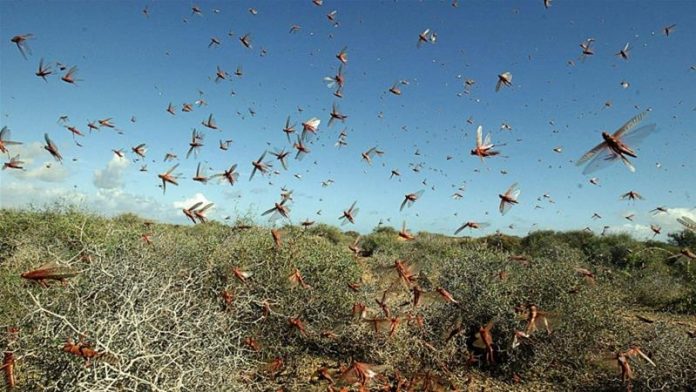Swarms of locusts have overtaken many districts of Sindh, and become a major threat to to numerous agricultural crops.
The pestilent species of grasshopper was first observed in large numbers in Khairpur, after which it spread to at least six more districts in the province. The large scale attack of these locusts has caused fears of a massive crop devastation in barrage areas.
The locusts have been spotted in areas including Dadu, Matiari, Jamshoro, Nawabshah, Naushehro Feroze and Sanghar districts. Photographs and videos of the pests resting and brimming to move towards the crops have been making the round on social media.
It is feared that locusts will be able to destroy the agricultural belt of Sindh if they enter Mirpurkhas, Tando Allahyar, Matiari, Hyderabad and other districts on the left bank of Indus River.
The situation is dire enough that the Sindh Abadgar Board Vice President Syed Mehmood Nawaz Shah asked the federal government to launch an international appeal for help. He was of the view that the Ministry of National Food Security and Research’s Department of Plant Protection (DPP) was unlikely to be successful in tackling locusts in Sindh as it had already failed to control the insects in plain areas of Balochistan.
Meanwhile, the government is preparing areal measures for any major, large scale invasion threat that the locust’s might pose.





There is a scientific phenomenon that locus attack is preodical and follows a 13 or 17 years cycle (depends on the locus type). If our country is attacked by same type, then our governments should be able to predict and plan. I am not a biologist but food for thought to any relevant person reading this 🙂